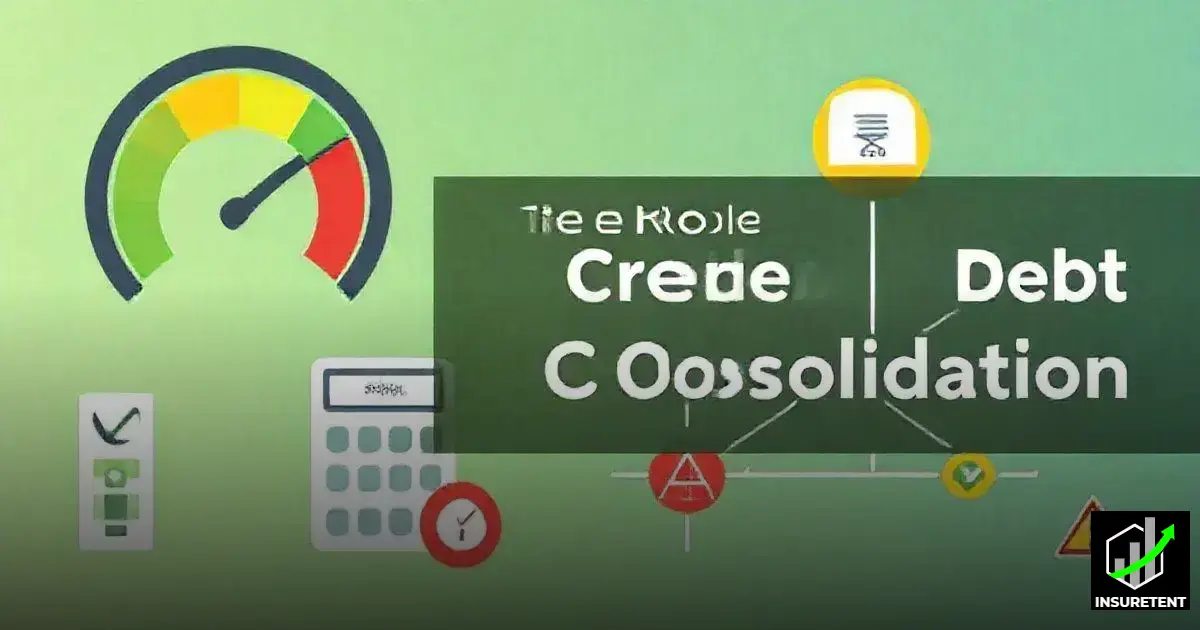Managing multiple debts can be overwhelming, but debt consolidation offers a solution. By combining your debts into a single payment, you can streamline your finances and make repayment more manageable.
Beyond simplifying payments, debt consolidation often comes with the benefit of lower interest rates, helping you save money in the long run. This strategy not only reduces financial stress but also accelerates your journey toward becoming debt-free.
Curious about how debt consolidation can transform your financial outlook? Discover effective tips and strategies to take control of your debts today!
Understanding Debt Consolidation
Understanding Debt Consolidation involves recognizing how various debts can be combined into a single monthly payment. For many people, juggling multiple loans and credit card debts can be overwhelming and stressful. Debt consolidation aims to simplify this scenario.
When you consolidate your debt, you take out one loan to pay off others. This means instead of keeping track of several different bills, you manage only one. It’s crucial to evaluate interest rates, as a good consolidation loan typically has a lower interest rate than the debts you currently hold.
Additionally, debt consolidation can often help reduce your monthly payment amount, making it easier to manage your finances. However, it’s important to understand the differences between secured and unsecured loans—informed decisions will lead to better outcomes.
This approach can provide a much-needed breather, allowing you to focus on improving your credit score and building a healthier financial future.
Benefits of Debt Consolidation

Benefits of Debt Consolidation are significant for those dealing with multiple debts. One of the primary advantages is the reduction in monthly payments. By consolidating, you can often lower the amount you pay each month by securing a lower interest rate.
Another benefit is the simplification of payments. Instead of tracking several accounts, you only have one payment to manage, which can help prevent missed payments and late fees.
Debt consolidation can also improve your credit score over time. By paying off debts, you reduce your credit utilization ratio, which is a significant factor in credit scoring.
Additionally, stress relief is a major benefit. Knowing that you have one manageable debt can make a huge difference in your overall mental well-being. This allows you to focus on financial planning and recovery without the burden of overwhelming debt.
Lastly, consolidation may provide access to additional resources and tools from financial institutions that can aid in managing your finances effectively.
Types of Debt Consolidation Options
Debt consolidation offers various ways to combine multiple debts into a single, more manageable payment. Each method has unique features and is suited to different financial situations.
1. Debt Consolidation Loans:
This is one of the most common approaches. These loans allow you to borrow a specific amount to pay off existing debts. They can be secured (requiring collateral, often with lower interest rates) or unsecured (no collateral but typically higher interest rates).
2. Balance Transfer Credit Cards:
This method involves transferring high-interest credit card debt to a new card that offers a promotional 0% interest rate for a set period. It’s an effective way to save on interest, but it’s crucial to repay the balance before the promotional period ends to avoid high rates.
3. Home Equity Loans or HELOCs:
Homeowners can leverage the equity in their homes to secure loans or lines of credit for debt consolidation. These options usually come with lower interest rates but put your home at risk if you default.
4. Credit Counselling Services:
Credit counselling agencies can help create a debt management plan tailored to your situation. They negotiate with creditors to lower interest rates and establish a more manageable repayment schedule.
Each of these options has distinct advantages and disadvantages. Carefully evaluating your financial situation and understanding these methods can guide you toward the most suitable choice for managing your debts effectively.
Common Mistakes in Debt Consolidation
Common Mistakes in Debt Consolidation can lead to further financial trouble if not properly managed. One major mistake is choosing the wrong type of consolidation method without understanding the implications. It’s essential to compare the different options available, such as debt consolidation loans, balance transfer credit cards, and credit counselling services, to find the best fit for your needs.
Another error people make is ignoring hidden fees. Many loans and credit cards come with additional costs, such as application fees or annual fees, which can add up quickly. Always read the fine print before committing.
Over-reliance on consolidation is also common. Some individuals believe that consolidating their debt will solve all their financial problems, but it’s crucial to address the underlying spending habits and create a realistic budget.
Additionally, many people forget to factor in the effect on their credit score. While consolidation can improve scores over time, applying for new credit can temporarily lower your score.
Finally, failing to keep track of payments post-consolidation can lead to missed due dates and additional fees. Setting up automatic payments can be a practical solution to avoid this mistake.
The Role of Credit Score in Debt Consolidation

The Role of Credit Score in Debt Consolidation is crucial for anyone considering this financial strategy. Your credit score affects your ability to secure loans or other forms of consolidation with favourable interest rates. A higher score generally means better terms, while a lower score may lead to higher rates or even denials.
When you apply for a debt consolidation loan, lenders will look at your credit history. They want to see if you have a pattern of paying bills on time. If you have missed payments or defaults in the past, it could impact your chances of approval negatively.
Consolidating debt can actually help improve your credit score over time if managed correctly. As you pay down your debts, your credit utilisation ratio decreases, which can boost your score.
However, it’s essential to avoid opening too many new credit accounts during the consolidation process. Each application can result in a hard inquiry, which may temporarily lower your score.
In summary, understanding how your credit score impacts your debt consolidation journey is vital. You should monitor your score regularly and work on improving it prior to seeking consolidation options. This proactive approach will help you secure the best possible outcome in your debt management strategy.
Tips for Successful Debt Management
Tips for Successful Debt Management are essential for anyone seeking to regain control over their finances. Start by creating a realistic budget that includes all your income and expenses. By understanding where your money goes, you can identify areas to cut back.
Next, prioritize your debts. Focus on paying off high-interest debts first, as this will save you money in the long run. Consider using the debt snowball method, where you pay off the smallest debts first to build momentum or the avalanche method to save on interest.
Setting up automatic payments can prevent missed payments and late fees. Make sure to communicate with your creditors if you’re struggling; they may offer assistance or lower payment options.
Additionally, consider seeking help from a credit counseling service for professional advice tailored to your situation. They can help negotiate lower interest rates and create a manageable repayment plan.
Lastly, stay motivated by tracking your progress and celebrating small victories. This will keep you focused on your goal of becoming debt-free.
Seeking Professional Help

Seeking Professional Help can be an important step for those struggling with debt. Financial experts, such as credit counsellors, provide valuable assistance in creating a debt management plan tailored to your needs. They assess your financial situation and help you explore various options for consolidation and repayment.
When seeking professional help, ensure that the service is non-profit and reputable. Many organisations offer free consultations to discuss your financial issues without any commitment. It’s crucial to ask about their credentials and check for reviews or accreditation to ensure you’re getting reliable advice.
During the counselling sessions, be open about your financial history and goals. This transparency will help the counsellor provide the best recommendations. They may suggest options like debt management plans or negotiation tactics with creditors to lower interest rates and reduce payments.
Additionally, a financial advisor can provide insights on budgeting and managing your finances effectively. Hiring a professional might come with costs, but the long-term benefits can outweigh these expenses by helping you regain control of your finances.
